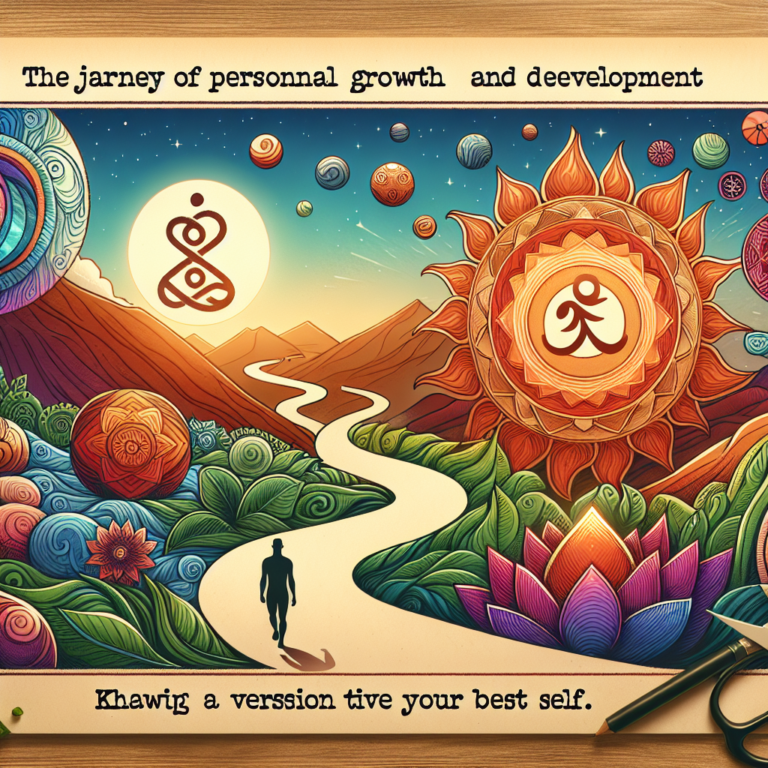The concept of karma is often misunderstood. Many people associate it strictly with the idea of punishment or reward based on one’s actions. However, karma is a far more nuanced philosophy that speaks to the relationship between our actions and their consequences. Understanding karma transcends cultural boundaries, providing insight into how our daily decisions shape not only our destinies but also our experiences and relationships.
Understanding Karma
Karma originates from ancient Indian philosophy and is central to Hinduism and Buddhism. The term itself means “action” or “deed” and refers to the law of moral causation. Essentially, karma posits that every action has consequences, which will manifest in this life or future reincarnations. While the traditional understanding of karma encompasses spiritual and existential elements, we can also apply its principles to our everyday lives.
The Basic Principles of Karma
- Action and Reaction: Every action triggers a reaction. Positive actions tend to yield positive outcomes while negative actions can lead to negative results.
- Intent Matters: It is not merely the action but also the intention behind it that determines the karma created.
- Karma is a Cycle: Karma exists in a continuous cycle. The actions we take today will shape our future and impact the environment around us.
- Universal Accountability: Everyone is accountable for their actions, and what goes around often comes around.
The Practical Applications of Karma in Daily Life
Understanding karma and its implications can significantly affect our daily lives. By recognizing that our actions contribute to future outcomes, we can make more conscientious decisions. Here are some practical applications of the concept of karma:
1. Mindful Living
Practicing mindfulness encourages us to be present and aware of our actions. It is about recognizing how our current behavior can affect not just ourselves, but also those around us. Being mindful allows us to reflect on the intentions behind our actions and to choose responses that cultivate positivity.
2. The Ripple Effect
Think of the way one kind act can inspire others to pay it forward. This ripple effect of goodwill can create a network of positivity and kindness that extends far beyond our immediate sphere of influence. A single action, no matter how small, can lead to a multitude of positive outcomes.
3. Accountability and Responsibility
Embracing the philosophy of karma teaches us to take responsibility for our actions. By acknowledging the consequences of our behavior, we develop a deeper understanding of our role in shaping our own lives and the lives of others.
4. Cultivating Good Relationships
The quality of our relationships greatly affects our happiness and success. When we act with kindness, empathy, and respect, we build strong connections with others. By understanding the karma behind our interactions, we make choices that foster healthy, nurturing relationships.
5. Overcoming Adversity
When faced with challenges, the understanding of karma can help us maintain a positive perspective. Instead of seeing hardships as unjust punishments, we can view them as opportunities for growth and learning. This shift in mindset allows us to approach obstacles with resilience.
Real-Life Examples of Karma in Action
The principle of karma is illustrated vividly through real-life scenarios. These examples can help make the concept more tangible and relatable:
Example 1: Acts of Kindness
Consider a scenario where someone helps a stranger in need, such as aiding an elderly person cross the street. This act of kindness not only benefits the recipient but also uplifts the helper’s spirit. The good vibes and satisfaction from helping others often return to the helper in ways they may not expect. This cycle of positivity is a beautiful illustration of karma in action.
Example 2: Negative Actions Resulting in Consequences
Conversely, if someone consistently engages in dishonest practices—like cheating at work or in relationships—they may think they are getting away with it initially. However, the eventual fallout, such as loss of trust, damaged reputations, and strained relationships, illustrates the negative consequences of their actions. The negative karma generated from these choices often leads to adverse outcomes that loop back into their lives.
Example 3: The Importance of Intention
Intention plays an essential role in karmic outcomes. If someone donates money to charity solely for personal gain, like tax breaks or social recognition, the karma they generate is likely to be less positive. In contrast, a genuine act of charity driven by empathy and kindness creates a cycle of goodwill that resonates on a much deeper level.
How to Harness the Power of Karma to Shape Your Future
With an understanding of how your actions shape your future, you can begin the journey of harnessing the power of karma in your life. Here are actionable steps to help you navigate this path:
1. Be Intentional
Take time to reflect on your motivations before acting. Being intentional about your actions can lead to fulfilling experiences and positive karma. Check-in with yourself regularly to ensure your actions align with your values and goals.
2. Practice Forgiveness
Holding onto negative feelings or grudges creates negative karma. Practice forgiveness not just for others, but for yourself. Acknowledging mistakes and letting go lessens the weight of negative energy and paves the way for a brighter future.
3. Spread Positivity
Make it a daily goal to spread positivity. Compliments, encouragement, and small acts of kindness can create a wave of positive karma that not only lifts others but also enhances your own life. Positivity tends to attract more positivity.
4. Engage in Self-Reflection
Make self-reflection a regular practice. Journaling or meditation can help you understand the impacts of your actions and allow you to notice patterns in your behavior. This awareness provides insight into how to alter your actions moving forward.
5. Stay Open to Learning
View challenges and setbacks as learning opportunities. Understand that every experience, whether good or bad, contributes to your karmic journey. Embrace growth and adapt based on these experiences.
The Relationship between Karma and Modern Science
Interestingly, the concept of karma resonates with various modern scientific theories and philosophies. From quantum physics, which explores the interconnectedness of energy, to psychological studies emphasizing the impact of kindness and altruism on mental health, there is a growing body of evidence supporting the karmic philosophy.
1. Quantum Entanglement
In quantum physics, entangled particles are connected in such a way that the state of one instantly affects the other, regardless of distance. This echoes the karmic idea of interconnectedness—the understanding that our actions can create lasting impacts beyond immediate results.
2. Altruism and Happiness
Scientific research suggests that acts of kindness produce a “helper’s high,” releasing endorphins that boost happiness levels. This validation aligns with karmic beliefs that benevolent actions yield positive returns, thus impacting one’s happiness and overall well-being.
3. Psychology of Consequences
Behavioral psychology studies the effects of actions on future behavior. The evidence shows that individuals tend to repeat behaviors that have rewarding outcomes, further reinforcing the idea of karma—where our past actions influence our future choices.
Challenges in Understanding and Applying Karma
Despite its encouraging tenets, many face challenges in understanding and applying karma in their lives. Some common hurdles include:
1. Misinterpretations of Karma
Many people misinterpret karma as a simple transactional system where good actions lead unquestioned to good outcomes. This oversimplification fails to account for the complexity of life and the various factors that influence outcomes.
2. Instant Gratification Culture
In a world driven by instant gratification, it can be difficult to trust the process of karma. People often seek immediate results, leading to frustration when their positive actions do not mirror quick rewards.
3. The Challenge of Changing Habits
Recognizing the impact of one’s actions is the first step toward change. However, ingrained habits and tendencies can impede this transformation, making it challenging to adopt karma-conscious living.
4. Balancing Self-Interest and Altruism
Striking a balance between self-interest and altruism can be complex. It’s essential to acknowledge personal needs while also giving consideration to the impact of one’s actions on others.
Conclusion
How we act today sets the stage for our tomorrow. By understanding the nuanced philosophy of karma, we can harness its power to shape a more fulfilling future. Our actions and the intentions behind them have the potential to create ripples of positivity that extend beyond our own lives. As we navigate our daily choices, let us remain mindful of the profound truth: what we put into the universe ultimately returns to us.
No matter where we are on our journey, it’s never too late to begin acting in ways that align with our values and aspirations. By fostering a deeper understanding of karma, we can encourage a better world for ourselves and others, cultivating a cycle of goodwill and motivation for positive change.
FAQs about Karma
1. What is Karma?
Karma refers to the idea that every action has a consequence, shaping our present and future experiences. It transcends punishment and reward, focusing more on the interconnectedness of decisions and their outcomes.
2. How can I create positive karma?
Creating positive karma involves engaging in kind and altruistic actions, being mindful of your intentions, and reflecting on the consequences your actions have on others and yourself.
3. Does karma impact my relationships?
Yes, the principles of karma significantly influence relationships. Acts of kindness foster harmony while negative actions can create conflict and bitterness. Understanding karma can lead to healthier interactions.
4. Can karma result in change in this lifetime?
Absolutely! The effects of karma can unfold in this lifetime, affecting various aspects like relationships, career opportunities, and personal growth, based on the choices we make.
5. Is karma the same in all cultures?
While the term ‘karma’ is rooted in Eastern philosophies, similar notions regarding cause and effect exist in various cultures, emphasizing ethical behavior and the consequences of one’s actions.
6. How do I begin to incorporate karma into my daily life?
Start by being mindful of your actions, setting positive intentions, and practicing kindness each day. Reflect on your choices and their impact to cultivate a deeper understanding of how karma works.
Sure! What would you like a prompt for? Writing, drawing, brainstorming, or something else? Let me know your preference!, #Actions #Shape #Future #Power #Karma, #Actions #Shape #Future #Power #Karma, 1736426231, how-your-actions-shape-your-future-the-power-of-karma





